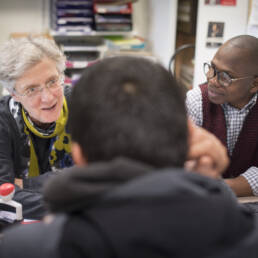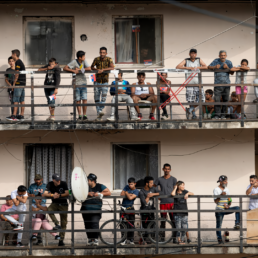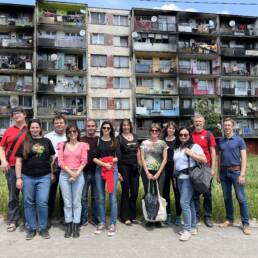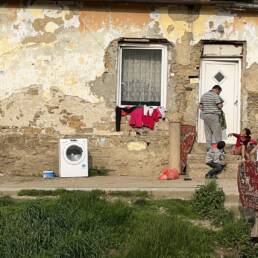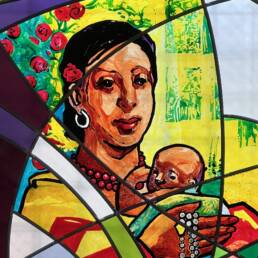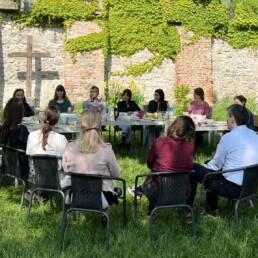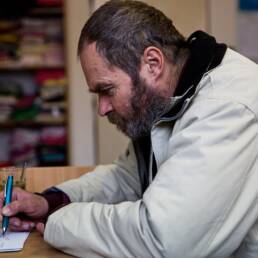Author
Verena Liessem
Policy Officer for economic questions of social security
Caritas Germany
Philip Hagedorn
Legal Officer
Caritas Germany
The German Caritas CARES! report has as its special focus public employment services, early childhood education and housing. These fields are scrutinised and discussed under the factors of availability, accessibility, affordability and adequacy.
In general, it can be said that access to public employment service and early childhood education in Germany is fairly good. However, public employment services are often not available for asylum seekers or migrants who migrated recently to Germany. For other specific groups, the service must be improved by enhancing the availability of tailor-made labour market solutions for these people. Caritas Germany offers multiple measures for people who want to reintegrate the labour market. One of the most innovative measures in the last years is Stromspar-Check (energy saving project for low-income-households). With this measure, long-term unemployed people are trained to advise households with low income how to lower their energy costs (for more information, see www.stromspar-check.de (in German)). Another innovative measure is Einzigware (https://einzigware.de (in German)), which is an upcycling project. Items that are manufactured by long-term unemployed people, who cannot work in the first labour market, are offered for sale under the label Einzigware.
When it comes to housing, the situation in Germany is particularly tense in urban areas. Here apartments are hardly affordable and the situation for vulnerable persons, such as people with low income, persons with a migration background, large families or families with single parents, is very difficult, more so in areas where there is no or hardly any social housing. One testimony describes this situation quite vividly:
We are a family of six people, my father and us five children. My mother left us overnight. […] The six of us share a hotel room in an emergency shelter. […] We have lived there for two years already. […] We don’t get a flat. Whenever we find a place that suits us, the landlords don’t want us. Some say the reason for this is because we are six people, others say because we are five children. Others again don’t want the rent to be paid by the Job Centre, and also don’t like the fact that we are originally from the south of Europe. For them my father’s credit rating is too low. But these only come from a couple of unpaid mobile phone invoices. […] Caritas is helping us to look for a flat, but they have not yet been successful either.
Caritas offers many services for homeless people. There are shelters, soup kitchens, places to meet, food banks, charity shops and so on. Moreover, Caritas Germany offers special advice for homeless people to help them find a flat and reintegrate into society, but also on how they can access their rights. On the other hand, there are services that try to prevent homelessness, for example debt counselling.
With the German Caritas CARES! report we demand stronger investments into the social housing market, especially in urban areas. Moreover, we want to improve policies that have a focus on affordable housing for people and families with low income.
The analysis and recommendations in the report are linked to European strategies and instruments, such as the EU Agenda 2020 or the European Pillar of Social Rights. As for the EU Agenda 2020, set up in 2010, the aim has been to reduce poverty in Europe by around 25% or 20 million people in total numbers. As of today, we can conclude that this goal will not be reached, thus more efforts in the future are highly necessary. Linking to article 14 of the European Pillar of Social Rights, the report emphasises that the reduction of poverty and social deprivation in Europe can also be tackled by supporting poverty-proof minimum income systems across the Union. Last but not least, the report stresses the importance that EU funds play, most notably the European Social Fund (ESF) and the European Aid to the Most Deprived (FEAD), in the combat against poverty and social exclusion.
The German Caritas CARES! country report is available for download here: www.caritas.de/europa.


